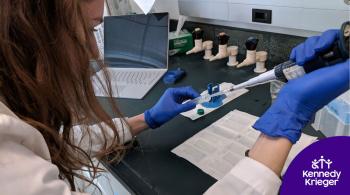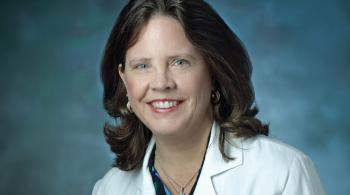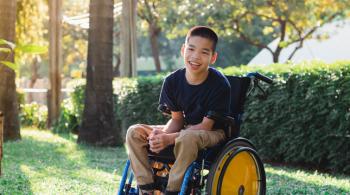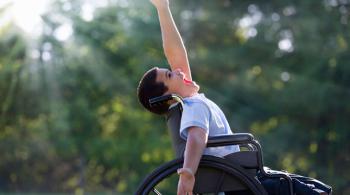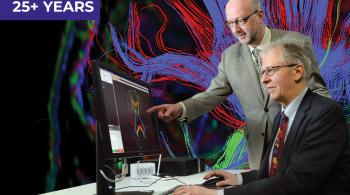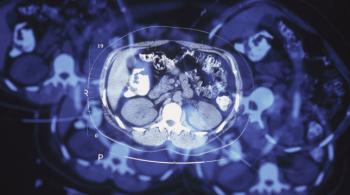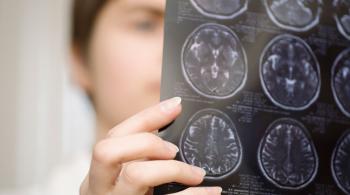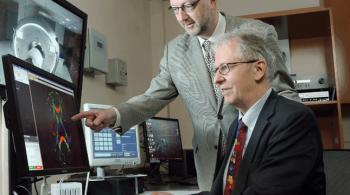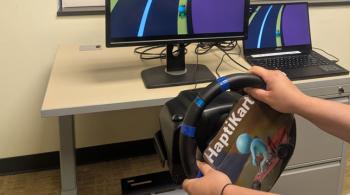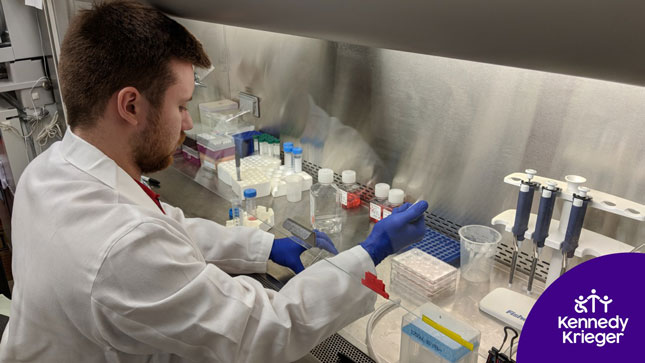
Dr. Bradley L. Schlaggar, President and CEO, Kennedy Krieger Institute
At Kennedy Krieger Institute, research is more than a pursuit of knowledge—it is a promise to every child and family who comes through our doors that we will always push forward the boundaries of knowledge. Discovery, through research, becomes hope and healing.
A powerful example of this impact comes from our work at the Hunter Nelson Sturge-Weber Syndrome Center. Sturge-Weber syndrome is a rare neurological disorder often marked by seizures in early infancy. What began as promising laboratory research is now shaping care at Kennedy Krieger. We are implementing a presymptomatic treatment that is delaying and potentially preventing seizures among babies diagnosed with the condition. This proactive approach offers new possibilities for children and families facing a diagnosis once thought to have limited options.
Our scientists and clinicians, many of whom are themselves scientists, work side-by-side to ensure that discoveries move swiftly and effectively from the laboratory to the clinic, and insights from the clinic drive questions asked in the laboratory. This seamless bench-to-bedside-to- bench approach enables us to:
- Detect conditions earlier, when interventions are most effective.
- Develop personalized therapies tailored to each child’s unique needs.
- Equip families with knowledge and tools to support their children’s development.
With a profound focus on disorders of the developing nervous system in both clinical care and research, Kennedy Krieger stands apart from other health systems nationwide.
“Few places do what we do. What makes us unique is our focus on children with neurodevelopmental disorders—this is all we do—we are not a small part of a larger hospital system or research institution,” says Dr. Amy Bastian, Kennedy Krieger’s chief science officer and director of our Center for Movement Studies. “We likely have more pediatric neurologists and other pediatric specialists focused on neurodevelopmental disorders than anywhere else. We are not just adopting treatments—we are creating them.”
With 200 faculty members directly or indirectly engaged in translational and clinical research across many pediatric disciplines—physiatry, psychiatry, neurology, genetics, neuroscience, neuroimaging, neurodevelopmental pediatrics, psychology, therapy services, and more —the depth and breadth of our mission-driven research programs reflect the diversity and complexity of the patients we serve.
And that mission-driven clarity of purpose is making a difference. Thanks to our work, children with rare neurological conditions like Rett syndrome and X-Linked Adrenoleukodystrophy now have access to life-changing therapies. Patients with spinal cord injuries are utilizing innovative technology, combined with intensive physical therapy, and taking their first steps. Families have more answers—and more hope—than ever before.
At the F.M. Kirby Research Center for Functional Brain Imaging, for example, we are uncovering mysteries of the brain, developing and implementing cutting-edge neuroimaging technologies to explore brain structure and function in both children and adults, and helping to uncover the mechanisms behind neurodevelopmental and neurological disorders.
The Moser Center for Leukodystrophies is recognized globally as a leader in the diagnosis, treatment, and research of leukodystrophies—a group of rare genetic disorders affecting the white matter of the brain.
The Michael V. Johnston Center for Developmental Neuroscience, led by Dr. Joe Scafidi, is investigating the brain-based mechanisms that lead to neurodevelopmental disorders, including those acquired through early life-injury from such potential causes as lack of oxygen or blood supply, physical trauma or other forms of adverse experience.
Dr Scafidi and his team examine how brain cells consume energy after injury and what helps them recover. Ultimately, they are working toward identifying rational interventions that could help children not just survive a brain injury but reduce or reverse the effects of that injury so that they can thrive afterward.
Kennedy Krieger is also leading the way in clinical trials research, conducting pioneering trials focused on enhancing the lives of individuals affected by neurological, developmental, and rare genetic disorders. These studies play a vital role in advancing medical breakthroughs, deepening our understanding of these conditions, and driving the development of new treatments and improved care practices. By participating in these trials, families and individuals help fuel transformative discoveries that shape the future of medicine.
At Kennedy Krieger, the pursuit of knowledge is inseparable from our commitment to care. Every discovery, every study, every innovation is driven by a singular mission: to provide the best possible care for our patients and families—while training the next generation of physicians, scientists, therapists, educators, and advocates in the field of neurodevelopment and related disabilities.
In short, research fuels our ability to deliver hope, healing, and progress.


